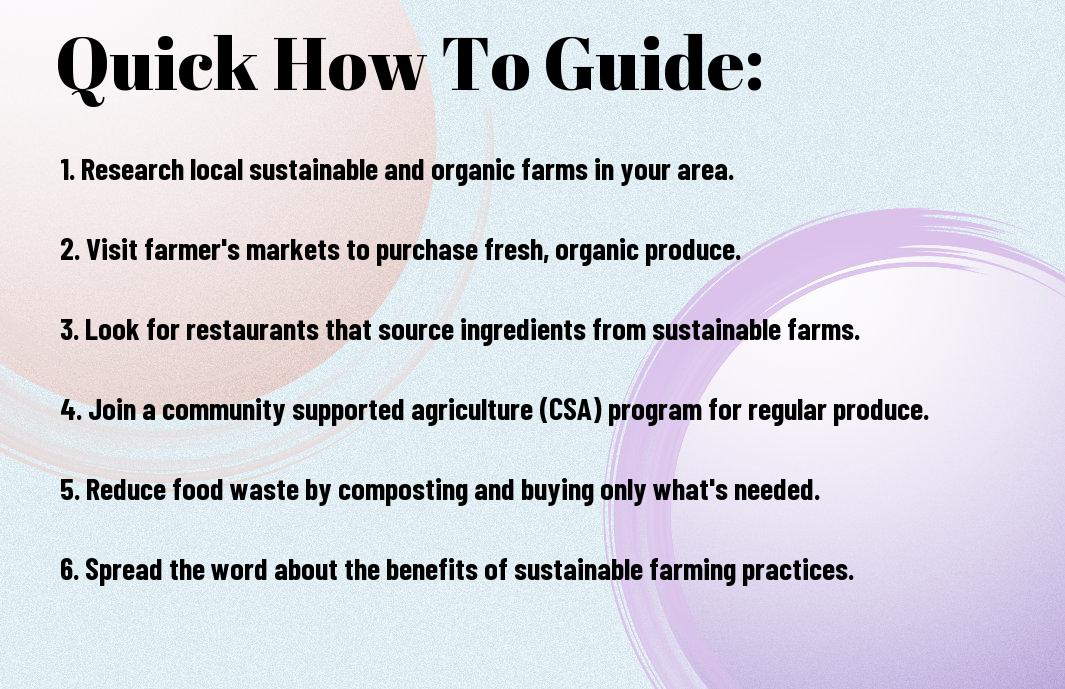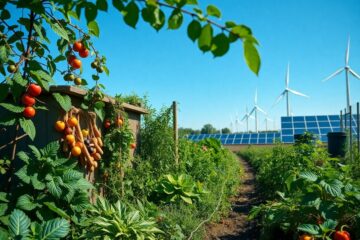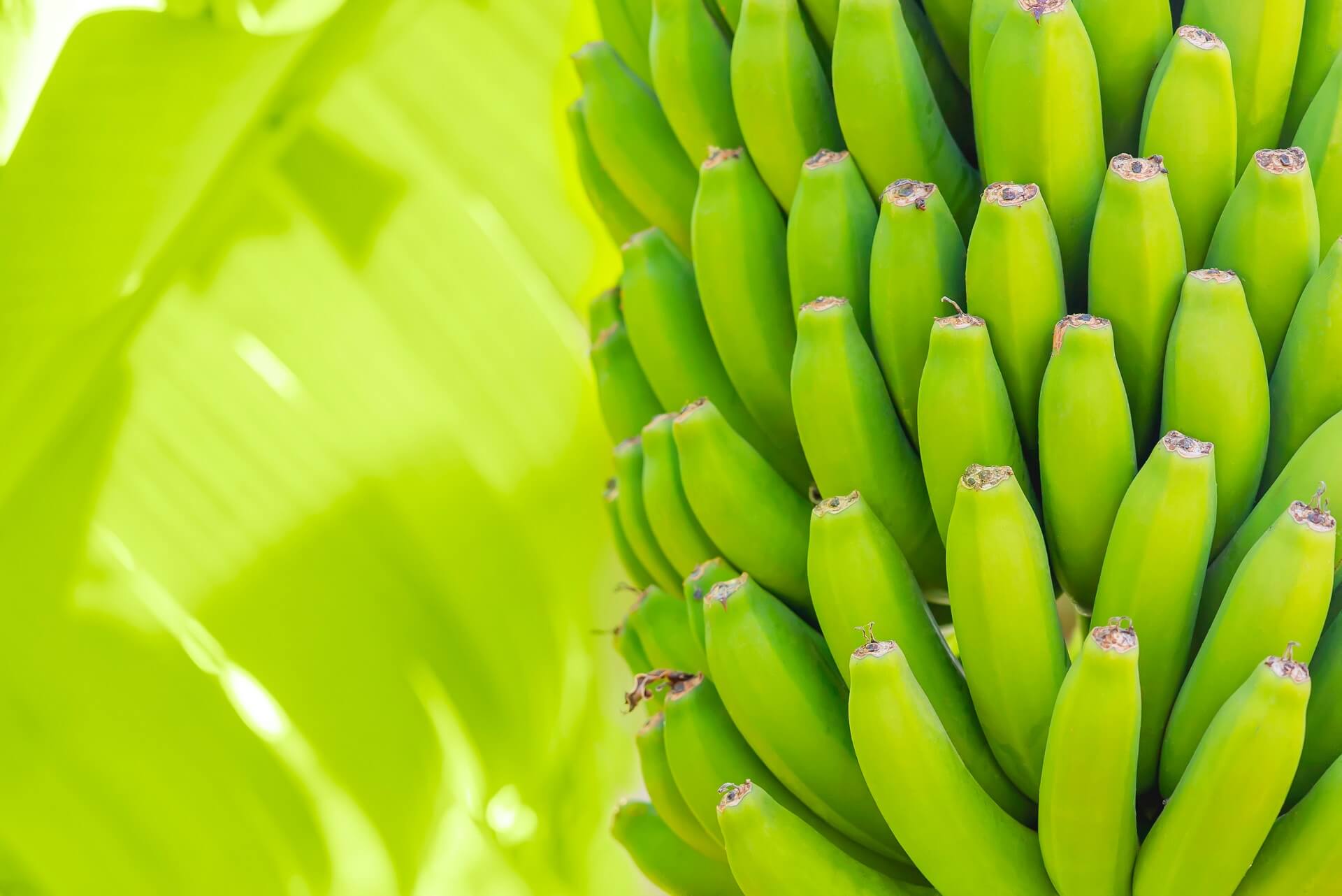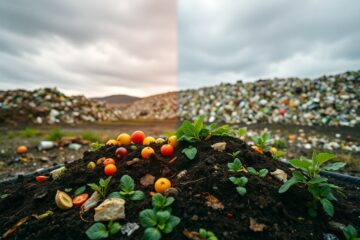Featuring a rare and valuable insight into the world of sustainable and organic farming, this blog post aims to educate and empower readers to make informed choices about the food they consume. With the growing concerns about environmental impact, pesticide use, and the health effects of conventional farming practices, it has become more important than ever to support sustainable and organic farming.
Learn about the dangers of conventional farming methods, the positive impact of supporting sustainable and organic agriculture, and how to make conscious choices to bring fresh, locally sourced produce from the farm to your table. By understanding the journey from farm to table, individuals can play a significant role in promoting a healthier planet and a more sustainable food system.
Table of Contents
Key Takeaways:
- Sustainable Farming is Essential: Supporting sustainable farming practices helps protect the environment, promote biodiversity, and conserve natural resources.
- Choose Organic Products: By choosing organic products, consumers can support farmers who use sustainable practices and avoid harmful chemicals and pesticides.
- Community Involvement: Getting involved in local farmer’s markets, CSAs, or community gardens can help promote sustainable and organic farming practices in your area.

The Fundamentals of Sustainable Farming
If we want to support sustainable farming, it’s important to understand the fundamentals of this practice. Sustainable farming is a method of producing food and fiber in a way that helps to maintain the health of the environment, supports local communities, and protects wildlife. This approach also ensures that the land can be used for farming for generations to come.
Defining Sustainable Farming Practices
Fundamentals of sustainable farming include practices that minimize the use of synthetic inputs such as pesticides and fertilizers, and instead focus on natural and organic methods of maintaining soil fertility and controlling pests. This can include techniques like crop rotation, cover cropping, and integrated pest management, which all contribute to healthier soil and reduce the need for harmful chemicals.
Additionally, sustainable farming practices may also involve conservation efforts such as water and energy conservation, as well as the protection of natural habitats and biodiversity on the farm. These practices all work together to create a more resilient and sustainable farming system that benefits the environment, communities, and future generations.
Key Principles of Organic Agriculture
Defining the key principles of organic agriculture involves a commitment to utilizing natural processes and resources, and avoiding synthetic inputs. This can include methods such as composting, natural pest predators, and biological fertilizers, all of which contribute to the health of the soil and surrounding ecosystem. It also involves a focus on biodiversity, utilizing diverse plant and animal species to create a balanced and resilient farming system.
Farming organically also means avoiding the use of genetically modified organisms (GMOs), synthetic hormones, and antibiotics, and instead prioritizing the well-being of the environment, animals, and consumers. These principles are rooted in creating a more sustainable and ethical approach to farming, and are fundamental to supporting organic agriculture.
Farming organically involves a commitment to utilizing natural processes and resources, and avoiding synthetic inputs. This includes practices such as composting, natural pest predators, and biological fertilizers. By prioritizing the health of the ecosystem and avoiding harmful chemicals, organic agriculture aims to create a more sustainable and ethical approach to farming, benefiting the environment, animals, and consumers.
How to Begin Supporting Sustainable and Organic Farms
Keep in mind that the journey to supporting sustainable and organic farms begins with a conscious effort to make a positive impact on the environment and your community. By choosing to support these farms, you are not only contributing to a healthier food system, but also promoting responsible land stewardship and ethical treatment of animals.
Identifying and Choosing Local Organic Products
To begin supporting sustainable and organic farms, start by identifying and choosing locally produced organic products. Look for farmer’s markets, food cooperatives, and grocery stores that prioritize sourcing from local farms. When choosing products, look for certifications such as USDA Organic, Non-GMO Project Verified, or Certified Naturally Grown, and inquire about the farm’s practices to ensure they align with your values. By choosing local, organic products, you can reduce the environmental impact of long-distance transportation and support your local economy.
Tips for Assessing Sustainable Agricultural Practices
An important aspect of supporting sustainable and organic farms is assessing their agricultural practices. When choosing a farm to support, consider the following tips for assessing sustainable agricultural practices:
- Look for farms that prioritize soil health through practices such as crop rotation and composting.
- Choose farms that prioritize biodiversity and use natural methods to control pests and weeds.
- Support farms that prioritize water conservation and use environmentally-friendly irrigation methods.
Recognizing these practices can help you make informed decisions when choosing which farms to support.
For instance, when assessing a farm’s sustainable agricultural practices, look for evidence of their commitment to improving soil health, minimizing pesticide use, and conserving water. By supporting farms that prioritize sustainable practices, you are contributing to the preservation of our environment and the promotion of ethical farming methods.
Factors to Consider When Choosing Organic Products
After deciding to support sustainable and organic farming, the next step is to carefully choose the organic products you bring into your home. Here are some factors to consider when choosing organic products:
- Certification: Look for products that are certified by recognized organic certification organizations, such as the USDA Organic or the European Union Organic Certifications.
- Ingredients: Check the ingredient list to ensure that the product is made with all-natural and organic ingredients without any synthetic or harmful chemicals.
- Local: Consider purchasing from local, sustainable and organic farms to reduce the environmental impact of transportation.
- Price: While organic products may be more expensive, consider the long-term benefits to your health and the environment.
The health and environmental benefits of choosing organic products far outweigh any additional costs.
Certification and Standards for Organic Foods
One of the most important factors to consider when choosing organic products is their certification and adherence to organic standards. Different countries have different standards for organic certification, but all share the common goal of promoting sustainability and health.
The rigorous certification and standards for organic foods ensure that the products are grown and processed without the use of synthetic pesticides, herbicides, or genetically modified organisms, which can have harmful effects on the environment and human health.
Environmental and Health Benefits of Organic Goods
Factors such as reduced chemical and pesticide exposure, no harmful additives, and nutrient-dense foods are just some of the many benefits of choosing organic goods. By purchasing organic products, you are supporting sustainable agriculture practices that prioritize the well-being of the environment and future generations.
Standards for organic foods ensure that they are not only better for the environment, but also for your health, as they do not contain harmful chemicals or additives that are commonly found in conventionally grown products.
Tips for Incorporating Organic Foods into Your Diet
Now, if you’re looking to incorporate organic foods into your diet, there are a few simple tips that can help you make the transition seamlessly. By following these suggestions, you can support sustainable and organic farming while reaping the benefits of wholesome, nutrient-rich produce.
- Start by gradually replacing conventional produce with organic options.
- Shop at local farmers markets or join a Community Supported Agriculture (CSA) program to access fresh, seasonal produce.
- Read labels carefully and look for the USDA Organic seal to ensure the products meet organic standards.
- Experiment with new recipes that incorporate organic ingredients to make the transition exciting and enjoyable.
Assume that with these practical steps, you can make a significant impact on your health and the environment by choosing organic options whenever possible. As mentionen by mindbodysoulquest.com in their article “The Truth About Detox Diets – Do They Really Work?“, healthy food can have positive effects on the body.
Meal Planning with Seasonal Organic Produce
Foods that are in season not only taste better, but they also tend to be more affordable and have higher nutritional value. When meal planning, consider utilizing seasonal organic produce to create well-balanced and flavorful meals that support sustainable farming practices. Incorporating a variety of fruits and vegetables in your meals can provide a broad spectrum of essential nutrients and flavors, elevating your dining experience.
Preserving and Storing Organic Foods for Longevity
Organic produce has a shorter shelf life compared to conventional fruits and vegetables due to the absence of preservatives. However, with proper planning and storage techniques, you can extend the freshness of your organic foods and minimize food waste. Whether it’s freezing, canning, or pickling, there are various methods to preserve organic produce while maintaining its nutritional integrity.
Planning ahead and using proper storage containers can help you maintain the quality of your organic produce, allowing you to enjoy the benefits of sustainable and organic farming for an extended period.
How to Advocate for Sustainable Farming in Your Community
Not everyone may be aware of the benefits of sustainable and organic farming, and it’s important to advocate for these practices in your community. By spreading awareness and promoting support for sustainable farming, you can make a positive impact on your local food system and environment.
Engaging with Local Farmers and Markets
Community engagement with local farmers and markets is crucial for supporting sustainable farming. By building relationships with farmers, you can learn about their practices and show your support for sustainable methods. Visiting farmer’s markets and purchasing directly from local farmers not only helps the community by providing fresh and nutritious food, but it also supports sustainable farming practices.
Promoting Sustainable Farming Through Education and Awareness
Engaging the community in education and awareness events can help promote sustainable farming practices. By organizing workshops, seminars, and informational sessions, you can educate others about the benefits of sustainable and organic farming. This helps to raise awareness and inspire people to support sustainable farming through their choices.
Through education and awareness, individuals can learn about the importance of sustainable farming, the benefits to their health and the environment, and the ways in which they can support local farmers. By spreading knowledge and promoting support for sustainable farming, we can create a more sustainable and eco-friendly food system within our communities.
How to Grow Your Own Organic Garden
For those looking to support sustainable and organic farming, growing your own organic garden is a rewarding and impactful way to do so. By cultivating your own fruits and vegetables, you can ensure that your food is free from harmful pesticides and chemicals, while also reducing your carbon footprint.
Steps for Starting Your Organic Vegetable Patch
Starting your own organic vegetable patch is a great way to begin your organic gardening journey. Begin by choosing a sunny location with well-drained soil, and prepare the soil by adding organic matter, such as compost or manure. Once the soil is ready, select a variety of vegetable seeds or seedlings that are suited to your climate and soil conditions, and plant them according to the instructions on the packet.
Garden pests can wreak havoc on your organic garden, but there are natural ways to control them and maintain the health of your soil. Companion planting, using natural predators, and practicing crop rotation are all effective methods for controlling pests and promoting soil health. By using natural pest control methods, you can protect your garden without harming the environment or your health.
With natural pest control and maintaining soil health, you can create a thriving organic garden that is free from harmful chemicals and supports a healthy ecosystem. By implementing these practices, you can protect your crops from pests while promoting biodiversity and soil fertility. By taking these steps, you can ensure that your organic garden is a sustainable and environmentally-friendly source of fresh, nutritious produce.
Sustainable Dining Out: Choosing Restaurants That Support Organic Farming
Your dining choices can have a significant impact on the environment and local communities. By supporting restaurants that prioritize sustainable and organic farming, you can contribute to a healthier planet and help create a more ethical and transparent food system.
What to Look for in a Sustainable Restaurant
Support restaurants that source their ingredients from local, organic farms. Look for menus that highlight sustainable practices and partnerships with farmers who prioritize environmental and ethical farming methods. Pay attention to certifications such as USDA Organic, which ensure that the food you’re consuming meets specific standards for organic production.
Support establishments that prioritize sustainable seafood and animal welfare. Look for restaurants that serve seafood from responsibly managed fisheries and meat from humanely raised animals. By choosing restaurants that prioritize ethical sourcing, you can encourage more responsible farming practices.
How to Encourage Your Favorite Eateries to Go Organic
To create change, engage with your favorite restaurants and express your interest in supporting organic and sustainable dining options. Provide feedback and suggestions for incorporating more organic and locally sourced ingredients into their menus. Your input as a customer can have a significant impact on a restaurant’s sourcing decisions.
Any efforts to support sustainable dining, whether through social media posts, reviews, or direct communication with restaurant owners, can help drive demand for organic and ethically sourced food. Encouraging your favorite eateries to prioritize sustainable options can contribute to the growth of organic farming practices.
The Impact of Conscious Consumer Choices
To make a difference, be mindful of the impact of your dining choices. By supporting restaurants that prioritize sustainable and organic farming, you are influencing the market to value ethical and environmentally friendly practices. Your choices as a consumer can drive positive change in the food industry.
Restaurants that prioritize sustainable and organic farming contribute to the health of the environment, support local farmers, and provide healthier dining options for their patrons. By choosing these establishments, you are supporting ethical and transparent food systems that benefit both people and the planet.
Continued Advocacy for Sustainable Food Systems
An ongoing commitment to advocating for sustainable food systems is crucial in driving lasting change in the industry. By continuing to prioritize dining options that support organic farming, you are contributing to the demand for ethically and environmentally responsible practices.
Favorite eateries that align themselves with sustainable and organic farming practices are more likely to influence other establishments to follow suit. Your continued support for these restaurants helps create a domino effect, encouraging more businesses to prioritize ethical and sustainable sourcing.

FAQ
Q: What is sustainable farming?
A: Sustainable farming is a method of agriculture that focuses on producing food in a way that is beneficial to the environment, community, and economy. It aims to minimize the impact on natural resources, promote biodiversity, and maintain the long-term viability of farming. This may include practices such as crop rotation, organic fertilizers, and water conservation.
Q: What is organic farming?
A: Organic farming is a type of sustainable farming that avoids the use of synthetic pesticides, fertilizers, and genetically modified organisms (GMOs). It promotes soil health, biodiversity, and ecological balance. Organic farmers use natural methods such as crop rotation, composting, and biological pest control to maintain the health of the soil and crops.
Q: How can I support sustainable and organic farming?
A: You can support sustainable and organic farming by buying organic produce from local farmers markets, joining Community Supported Agriculture (CSA) programs, and choosing products with organic and sustainable certifications. Additionally, you can advocate for policies that support sustainable and organic agriculture, and participate in community gardens or urban agriculture initiatives.
Q: What are the benefits of supporting sustainable and organic farming?
A: Supporting sustainable and organic farming can help protect the environment, reduce exposure to harmful chemicals, support local economies, and improve food quality and nutrition. It also promotes animal welfare, reduces greenhouse gas emissions, and contributes to the overall health of the community and ecosystem.
Q: Are there any challenges to supporting sustainable and organic farming?
A: Some challenges to supporting sustainable and organic farming include higher costs for organic products, limited availability in certain areas, and the need for education and awareness about the benefits of sustainable and organic farming. However, as demand for organic and sustainable products grows, more options and resources are becoming available to overcome these challenges.

Our contributing author is a passionate advocate for eco-friendly living and sustainability. With a background in eco-life, they are dedicated to inspiring and empowering individuals to adopt environmentally conscious lifestyles. Through insightful articles, they share practical tips, innovative solutions, and thought-provoking perspectives to promote a greener, more sustainable world. Join them on the journey towards eco-smart living and discover how small choices can make a big impact. 🌱









